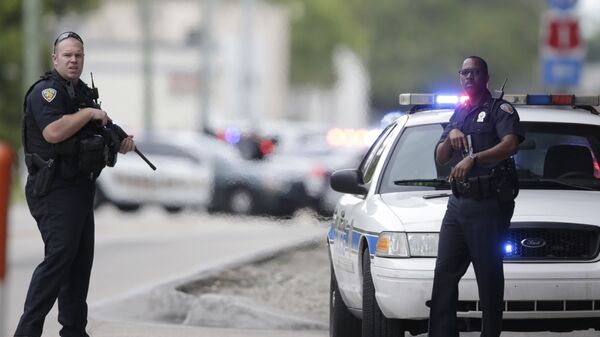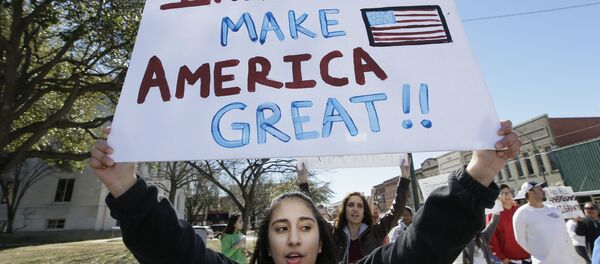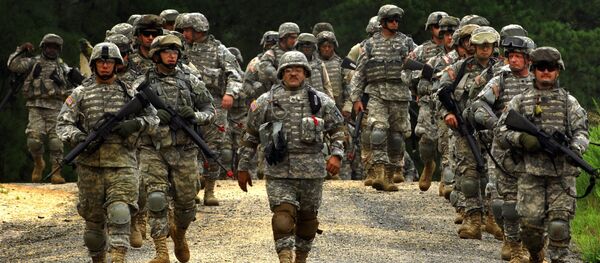In Aurora, Colorado, Police Chief Nick Metz took to Twitter to confirm that his department would not "investigate, enforce, or detain solely for immigration status" and to tell immigrants it was still safe to call the police for emergency assistance. "To our immigrant community,call 911 if U need emergency assistance!"
— Chief Nick Metz (@APDChiefMetz) February 17, 2017
Back in November, just after Trump's election, the Denver and Aurora police departments issued a statement saying they wouldn't be enforcing federal immigration laws. Some 20% of Aurora's population is foreign-born, the Denver Post reported at the time.
Metz came in for praise for his message, with some Twitter users asking if the police department could address communities directly. "It would be great to have you come out to our schools and meet with families and students. They are fearful," one wrote.
— NEVER my prez (@A_Big_Hell_NO) February 17, 2017
In Arizona's Maricopa County, new Sheriff Paul Penzone announced February 17 that his jails would no longer practice the "courtesy holds" for Immigration and Customs Enforcement. Previously, following a policy called an "ICE detainer," jails would hold individuals flagged by federal authorities for up to 48 additional hours after they would otherwise have been released, a practice Penzone said brought with it the "threat of litigation."
Under the new policy, effective immediately, individuals no longer will be detained beyond the time that they otherwise would released for whatever offense landed them in jail, AZ Central reported Friday. ICE will still maintain an agent in the jails and will screen offenders for their immigration status.
"There's no further authority to detain an individual," Penzone said. "We are following our legal obligation to process that individual for release."
Penzone's statement underlines the sharp turn the county has taken after he unseated infamous Sheriff Joe Arpaio, whose draconian and often illegal anti-immigration activities resulted in millions of dollars of legal fees and federal sanctions.
In Appleton, Wisconsin, police authorities confirmed to the media that they don't intend to enforce immigration law. It's outside the scope of their powers, Appleton Police Chief Todd Thomas told USA Today. Lacking the specific training of ICE agents, a local police officer arresting someone because of their immigration status "would be like me going to Illinois and trying to arrest somebody in Illinois for a crime," he said. "I don't have the authority or jurisdiction to do that."
President Donald Trump last week asked local cops to do exactly that when he told a conference of police chiefs in Washington to turn over "bad" immigrants they know to be undocumented.
"You know the illegals. You know them by their first name. You know them by their nicknames," Trump said. "You're in the neighborhoods: You know the bad ones, you know the good ones. I want you to turn in the bad ones," he said.
Some local police departments are reluctant to do what the president asks. They often rely on vulnerable members of the community to come to them with information about investigations, and adding to the fear that already hangs around America's increasingly militarized police force won't help them in their on-the-ground work.
"We don't want to be involved with anything having to do with immigration," Miami-Dade Police Director Juan Pérez told the Miami Herald last Monday. "We've been pretty clear."
Following the round up of hundreds of undocumented immigrants in ICE raids earlier this month, as well as reports that ICE agents have waited for undocumented immigrants after court hearings, the immigrant community in the country is increasingly worried. Members of the Congressional Hispanic Caucus have called Trump's expansion of the categories of immigrants who can be targeted by immigration authorities to include those who have not committed any crimes "chilling."




